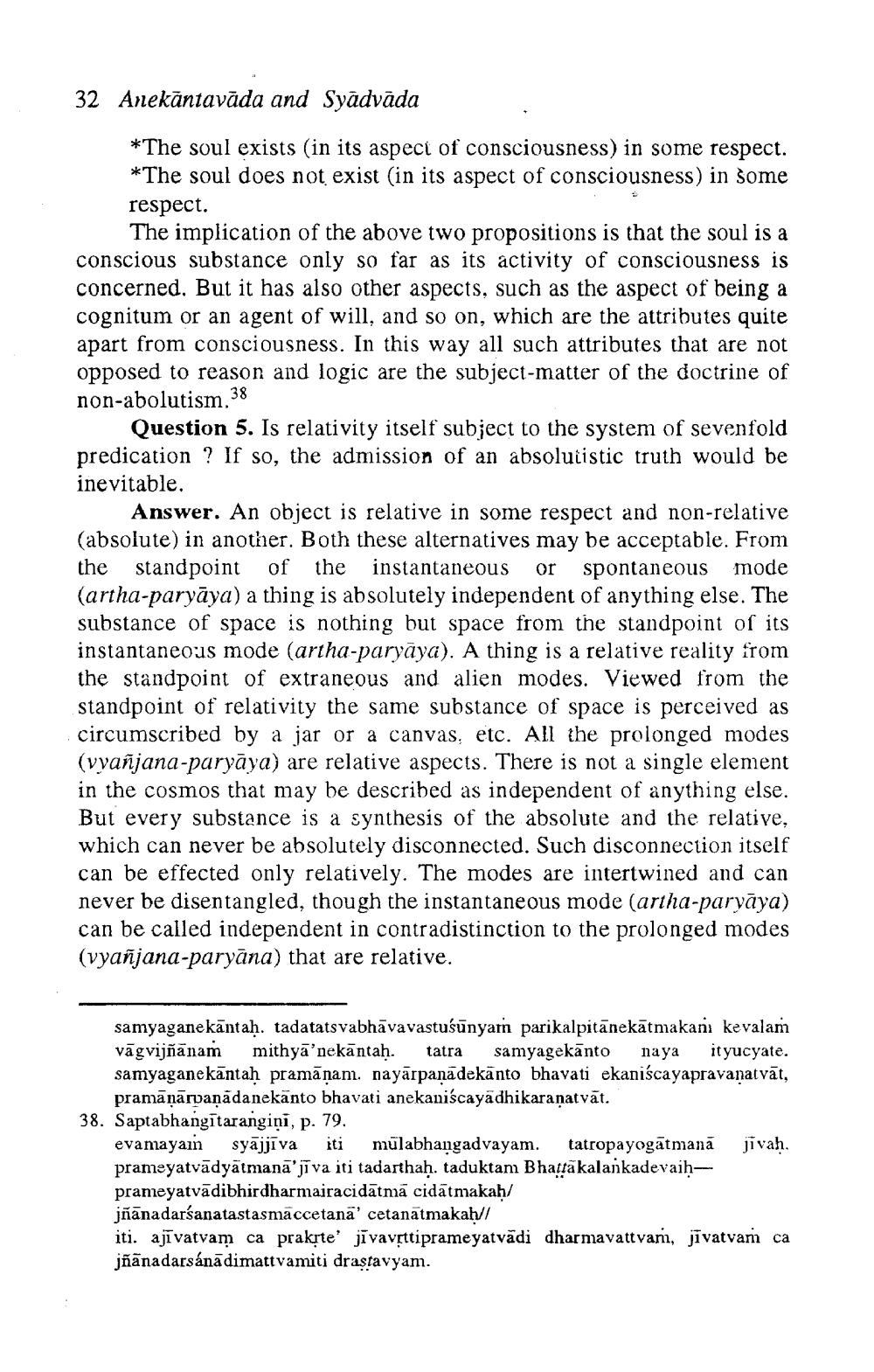________________
32 Anekāntavāda and Syādvāda
*The soul exists (in its aspeci of consciousness) in some respect. *The soul does not exist in its aspect of consciousness) in some respect.
The implication of the above two propositions is that the soul is a conscious substance only so far as its activity of consciousness is concerned. But it has also other aspects, such as the aspect of being a cognitum or an agent of will, and so on, which are the attributes quite apart from consciousness. In this way all such attributes that are not opposed to reason and logic are the subject matter of the doctrine of non-abolutism.38
Question 5. Is relativity itself subject to the system of sevenfold predication ? If so, the admission of an absolutistic truth would be inevitable.
Answer. An object is relative in some respect and non-relative (absolute) in another. Both these alternatives may be acceptable. From the standpoint of the instantaneous or spontaneous mode (artha-paryāya) a thing is absolutely independent of anything else. The substance of space is nothing but space from the standpoint of its instantaneous mode (artha-paryaya). A thing is a relative reality from the standpoint of extraneous and alien modes. Viewed from the standpoint of relativity the same substance of space is perceived as circumscribed by a jar or a canvas, etc. All the prolonged modes (vyañjana-paryāya) are relative aspects. There is not a single element in the cosmos that may be described as independent of anything else. But every substance is a synthesis of the absolute and the relative, which can never be absolutely disconnected. Such disconnection itself can be effected only relatively. The modes are intertwined and can never be disentangled, though the instantaneous mode (artha-paryāya) can be called independent in contradistinction to the prolonged modes (vyañjana-paryāna) that are relative.
samyaganekāntah. tadatatsvabhāvavastuśünyam parikalpitānekātmakanı kevalam vāgvijñānam mithyā'nekāntah. tatra samyagekanto naya it yucyate. samyaganekāntah pramānam. nayārpanadekānto bhavati ekaniscayapravanatvāt,
pramāņārpanādanekānto bhavati anekaniscayadhikaraṇatvāt. 38. Saptabhangītarangini, p. 79.
evamayain syajjiva iti mulabhangadvayam. tatropayogātmanā jīvah, prameyatvādyātmana' jīva iti tadarthaḥ. tаduktan Bhattākalankadevaihprameyatvādibhirdharmairacidātmā cidätmakah/ jñānadarśanatastasmäccetana' cetanatmakah// iti. ajīvatvam ca prakrte' jīvavsttiprameyatvādi dharmavattvam, jīvatvam ca jñānadarsánādimattvamiti drastavyam.




